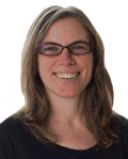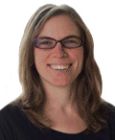Karl Pillemer is not your typical self-help guru. He's an internationally renowned gerontologist who has published for decades in health and medicine journals. But, at the age of 50, something changed. As he describes in the introduction to his new book, he was entering a new phase of life, "one foot firmly placed in marriage, work, childrearing, and planning ambitiously for the future." In short, Dr. Pillemer was newly in search of answers to life's complex questions, and the self-help section of his megabookstore wasn't helping. He urgently wanted advice based on lived reality that stood the test of time. In the end, he looked to those he knew best -- the oldest Americans -- for advice on how to live, past, present, and future.
After 5 years, and over 1000 interviews, the results are in the form of a wonderfully readable book -- 30 Lessons for Living: Tried and True Advice from the Wisest Americans. Dr. Pillemer's tone is warm and inviting, as he introduces "the experts" -- individuals 75 and older -- and puts their advice in context. Having just written a book focused on those 85 and older, I was curious about the parallels and differences between our findings.
The first three chapters surprised me; I wasn't expecting nostalgia, or an emphasis on past lives. And yet, experts looking back and offering advice on marriage, career, and parenting do not have to be cloying or didactic. The advice comes across as heartfelt, pragmatic, and fresh. While reading these sections I found myself tearing up, thinking back on my own major life decisions, triumphs, and challenges. I sighed with relief that I married my best friend -- someone a lot like me; someone I can talk with, just what the experts recommend. At the same time, when the experts reminded readers not to think of equal marriage in terms of 50-50 (but more like 100-100), or as a competitive exchange, I imagined they were talking to me.
The second half of the book had what I was looking for -- advice focused on the here and now, and looking ahead. As a culture we are severely under-resourced when it comes to hearing elder voices. How else do we learn about the joys and challenges of aging, and how to cultivate meaningful lives in old age. Dr. Pillemer has gone straight to the source, and experts emphasize attitude and state of mind; specifically fearlessness, happiness, and no regrets. Quotes about embracing "the adventure of old age" while preparing for death and dying fit well with the lessons I have learned from elders over the years. And this makes sense -- Dr. Pillemer's "experts," while all very different, have been shaped by similar life circumstances such as surviving the Great Depression and two world wars. They are a resilient, humble, prudent, and persistent bunch. And their unique approaches to living may be disappearing, in our increasingly self-centered, credit-driven culture. We need to learn from this generation before it is too late.
30 Lessons for Living is not meant to be a comprehensive look at elderhood in all of its diversity. We don't hear from those elders who never married; never had children. Nor do we hear from those who did marry, and who now, as widows, are exhaling and finally living for themselves. We don't get a sense of each individual, and the choreography of each life. Instead, Dr. Pillemer chooses to focus on broader patterns, and big picture themes. How he does this, without losing track of individual stories, is a feat. And then he leaves us with a request - to listen to the elders in our own lives. Listen, and draw out their wisdom. I couldn't agree more.
Copyright Meika Loe
Meika Loe is Associate Professor of Sociology and Women's Studies at Colgate University. She is the author of Aging Our Way: Lessons for Living from 85 and Beyond


